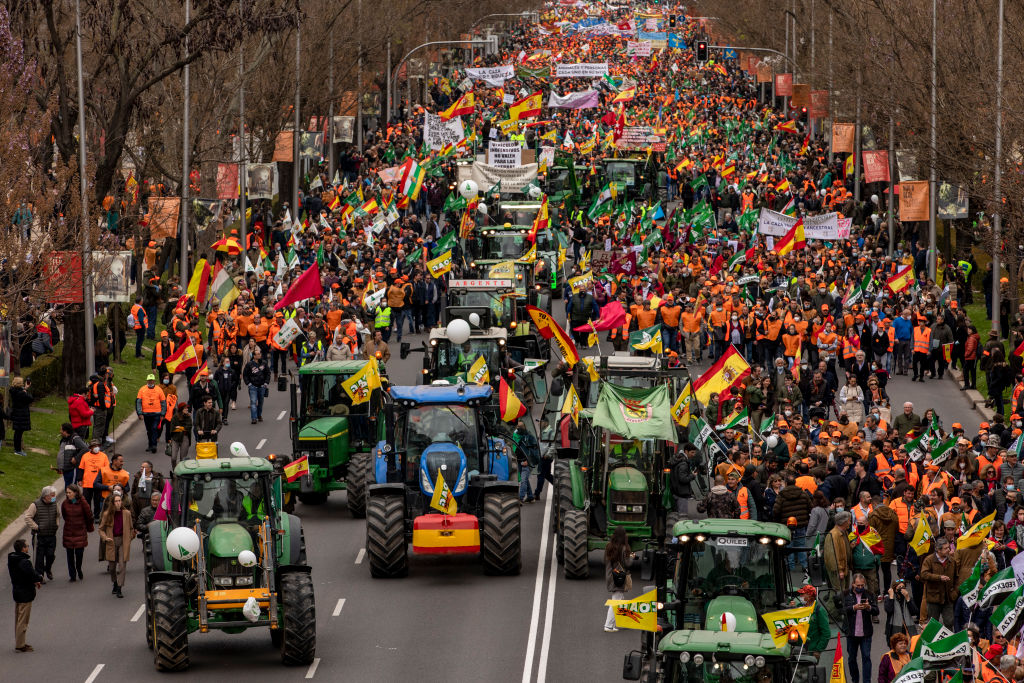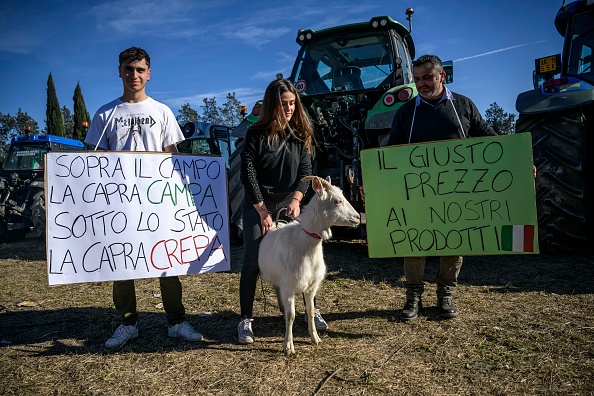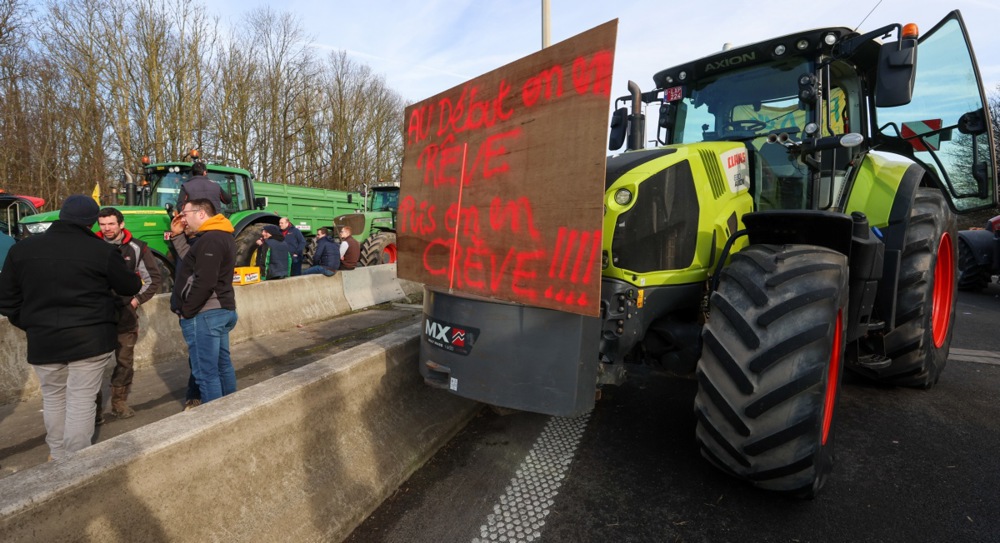Farmers from the Czech Republic, Slovakia and other central European countries protested along Czech borders on Thursday, blocking some crossings as they demanded less bureaucracy and changes to EU policy.
Farmers across Europe have been stepping up protests this year, including in Poland, France, Germany, Spain and Italy, complaining of low prices and high costs, cheap imports and constraints from the EU’s Green Deal climate change initiative.
Farmers blocked the Hodonin-Holic crossing on the Czech-Slovak border as hundreds of tractors, many draped with Czech or Slovak flags, filled the highway. Hungarian farmers were also seen among the crowds gathered.
Czech and Polish farmers also partially blocked a crossing in the northeast corner of the Czech Republic, where dozens of tractors were parked along the road, Czech news agency CTK reported.
Other Czech border points, including into Germany, were set to see protests. The Czech Agrarian Chamber said 3,000 tractors were taking part in protests just in the Czech Republic.
“The fact that today farmers are protesting throughout the European Union is clear evidence that it is essential to address the redefinition of the terms of the EU’s Common Agricultural Policy (CAP),” the Chamber said in a joint statement with other countries’ main farmer organisations.
“The primary task of agriculture must remain to ensure food security, producing quality and safe food, while maintaining the economic viability of farmers.”
Slovak farmers also drove tractors through the Slovak capital Bratislava. The protests at the borders on Thursday were initiated by Czech Agrarian Chamber which had called on others in Central Europe to join.
Amid protests elsewhere in Europe, Kyiv called on the European Commission to take robust action after demonstrating Polish farmers blockaded the border on Tuesday and opened railway carriages to let grain spill out.
Central Europe’s farmers are angry over what they call unfair competition from abroad, particularly Ukraine, after an EU decision in 2022 to waive duties on Ukrainian food imports.
“We call on the European Commission to change the current set-up of trade cooperation with Ukraine and to prepare a proposal for change in line with the above proposals and the priority protection of its own farmers,” the Czech Agrarian Chamber’s statement with others said.
Farmers have said markets are facing distortions and low purchase prices coming from surpluses amid cheap imports. They also are unhappy with the growing paperwork that they face.
“We are not protesting against the European Union, we are protesting against unfair decisions of the European Commission,” Andrej Gajdos, a vice-chairman of the Slovak Agriculture and Food Chamber (SPPK), told protesters gathered at the Czech-Slovak border.
“We are farmers, we want to work in the field… we don’t want to fill out paperwork and sit at the computer.”





